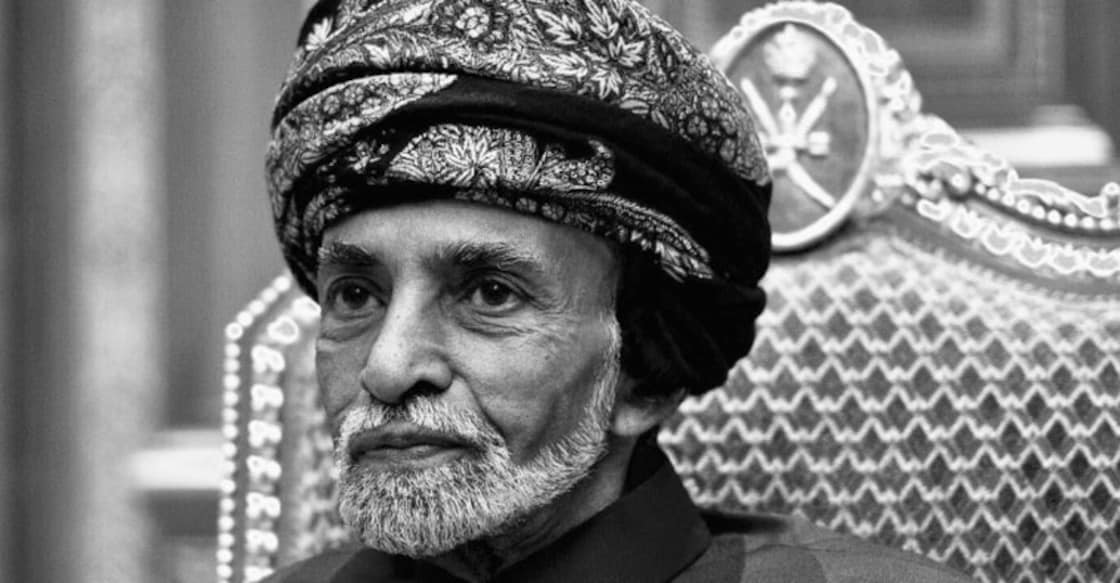Tribute | Sultan Qaboos ably steered Oman in turbulent Middle East

Mail This Article
Muscat: Sultan of Oman Qaboos bin Said Al Said, who died on Friday evening, trod his own path in the volatile Arab world. Thanks to his pragmatism, Oman remained an oasis of peace despite upheavals in the region. He fiercely guarded his country’s sovereign interests and is rightly considered the father of modern Oman.
Sultan Qaboos had been ruling Oman since overthrowing his father in a bloodless coup in 1970. He overruled the objections of other Arab rulers to employ British personnel in the Oman Army in the 1970s. He considered the move the only way to keep his country intact in those troubled times.
He established diplomatic ties with the USSR and China, much to the chagrin of the United States and its Arab allies. Later, he allowed the United States to use his country as a base to operate against the embattled Soviet troops in Afghanistan.
Under Sultan Qaboos, Oman became the only Arab country to make peace with Iran across the Gulf. He did not mind drawing military support from Iran and Jordan to suppress the Dhofar rebellion. He defied the Arab League diktat to disown Anwar Sadat after the Egyptian president broke bread with Israel in 1979.
Sultan Qaboos extended his daring tactics to the domestic front as well, starting with nationalisation of all sectors. The army was mostly manned by Britishers when the sultanate emerged victorious from the Dhofar rebellion. By 1977, however, all officers in the army were natives. In 1984, the army got its first home-grown commander.
Omanis rose to the helm of the navy and the air force by 1990. This prioritisation for natives was visible to the lowest rung of the economy, giving the Sultan an undisputed position as a popular leader. The self-reliance helped the country tide over the global recession without much harm.
Among people

Sultan Qaboos went that extra mile to take his people into confidence. He listened to the people during the famed ‘majlis’ during his travels across the sultanate. Anyone was free to go to the Sultan’s majlis and air his grievance. The popular platform was put in place as early as 1975.
In 1976, Sultan Qaboos launched the five-year plans to energise the country’s economy. An advisory council was put in place in 1981 to help in administration. Though bereft of any constitutional authority, Shura soon became a symbol of freedom of expression in the country. Originally named the State Consultative Council, the body was renamed as Majlis al-Shura in 1990.
The initial appointment of members by nomination was later replaced by a general election characterised by universal franchise. Any citizen was free to take part in the contest to the body. In 2007, two women were elected to the council.
Under Sultan Qaboos, Oman adopted a constitution in 1996. He allowed a trade union to operate in the country in 2006.
Stable rule

There were few rulers who lorded over a country for such a long time as Sultan Qaboos. His achievement becomes all the more striking given the largely peaceful tenure.
The country adopted a welfare model under his regime. He led his country towards development by focusing on basic sectors such as education and health care. Even as he focused on indigenisation, he made foreigners feel at home by offering them excellent job opportunities and a secure place to live in.
When Qaboos rose to the leadership of the sultanate on July 23 1970, he was entrusted with a mission to lay the foundation of a modern nation. Oman was on track to become a fast-growing economy when it joined neigbouring countries to form the Gulf Cooperation Council in 1981.
The Omani people offered the Sultan their unconditional support to tide over each crisis. The strength at home enabled Sultan Qaboos to become an effective mediator on the international stage. Oman was a key player in the historical Iran nuclear deal.
Thorns on the path

Sultan Qaboos did not have it easy all the way. As soon as he became the Sultan, he was faced with the difficult task of meeting the challengers in the Dhofar province. It took him five years to suppress the rebellion which was originally aimed at his father.
The Sultan faced a coup in May-June 1994 but he firmly dealt with the fundamental elements responsible for the botched attempt at overthrowing his government. Another coup attempt followed in 2004. The challengers who demanded a rule by Ibadi Imam were also defeated.
All of the coup members were charged with treason and put on trial but the Sultan issued a general amnesty later.
Sultan Qaboos was involved in a disastrous road accident in September 1995 when a car rammed the car he was driving and killed a junior member of the external affairs ministry.
Conservationist too
Sultan Qaboos was also known for his initiatives for the environment. He set up a separate ministry for environment soon after ascending the throne.
Oman’s schemes for the conservation of Arabian oryx (an antelope) earned laurels from the UNESCO. The international agency also instituted a biannual Sultan Qaboos Prize to recognise outstanding contributions by individuals and organisations for the preservation of environment.
Sultan Qaboos was a regular invitee at the universities in several countries including the United States, the United Kingdom and Australia.

